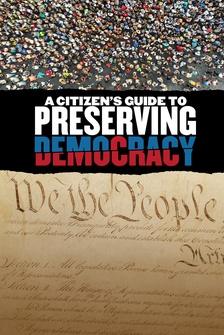So, imagine this, a woman of black and Asian descent, who was a failed candidate for the Democratic nomination in 2020, and who was a semi-marginalized vice president in a fairly unpopular administration, may beat a former president of the United States in the race for the White House.
This is completely improbable.
But what is also completely improbable is that the former president she's trying to beat is a convicted felon who encouraged a violent insurrection against the constitutional order and who has promised to be a dictator on his first day back in office.
It's all a bit much when you think about it, but it's not too much for our panel tonight.
Peter Baker is Chief White House Correspondent at The New York Times.
McKay Coppins is my colleague and a staff writer for The Atlantic.
Eugene Daniels is White House correspondent and co-author of Playbook at Politico.
And Vivian Salama is national politics reporter for The Wall Street Journal.
So, thanks all for being here.
National political politics, I know, it's all one long word.
Thank you all for being here.
We have a lot to get to.
The only thing that I ask tonight is that we don't use the expression, vibe shift, because I'd think it's too much with the vibes.
But -- no, no, no, no, no, it's like everybody gets one vibe.
You can't get one vibe in the next half hour.
But, Peter, let's start with you.
I want you all to frame out some big picture subjects for us tonight.
How did we get here to that situation that I just described?
PETER BAKER, Chief White House Correspondent, The New York Times: Well, it is worth stopping for a moment and thinking about what this year has been like, right?
And you alluded to this.
We have a president on trial for the first time in our history convicted of 34 felonies.
We have a Supreme Court that then steps in and says, well, maybe presidents actually have immunity even though it's not in the Constitution anywhere to be found.
We have an aging president just, you know, fading before our eyes, forced out of the race by his own allies, very dramatic moment.
Not even the most dramatic moment of the year.
Then his vice president, as you say, a woman of color, the first nominated ever for president by a major party, and then, of course, two assassination attempts.
I mean, you wouldn't make this stuff up if we had started the year this way.
Although maybe you would have, I don't know.
JEFFREY GOLDBERG: Right, not me.
PETER BAKER: You're more creative than I am.
What's really profound about this, though, is what we're going to learn about ourselves, I think, our country, this next week.
And I know that sounds, you know, whatever, but it's true.
We're in such a polarized moment.
This race, whatever it's going to be, as you say, we may not know even by this time next week.
It's at best a 51-49 country, right?
And whoever wins is not going to be able to pull them together.
Trump won't try.
It's not in his nature.
Harris says she will, but, let's face it, it doesn't seem very likely.
It wasn't that long ago we had presidents like Clinton or Bush or Reagan who -- Obama, who could get into the 60s when it came to their approval rating, who could earn the support of people who don't necessarily support them by doing something that they like or not like.
JEFFREY GOLDBERG: But Obama is an interesting example, of a hugely talented politician who -- one of the most talented politicians in the last 50 years, who couldn't get at that stage in American history.
PETER BAKER: Not in a sustained way command.
And ever since then, basically, we have not had a president over 50 percent for a sustained period in almost 20 years.
JEFFREY GOLDBERG: So, what I'm hearing you say is that past Tuesday, even if we know on Wednesday, say, who the next president is going to be, we're not past any of this.
PETER BAKER: We're not past any of it.
And we're not going to be past any of it on January 20th, even once we have actually inaugurated whoever it's going to be.
JEFFREY GOLDBERG: Right.
McKay, let me ask you a question about the Republican Party covering a lot in recent years.
So, this is the third time in a row that Donald Trump is the nominee of the Republican Party.
I read somewhere today that a 30-year-old voter has never had the opportunity to vote for a Republican nominee other than Donald Trump, going back to Mitt Romney, I guess, if they were 18.
Is there a non-Trump component of the Republican Party at all, or has the takeover been complete?
MCKAY COPPINS, Staff Writer, The Atlantic: The takeover has been complete for a long time, but there's always a faction of dissidents.
They've just been completely pushed out of the party or any kind of influential portion of the party.
Another way to think about this is if you're an 18-year-old American casting your first vote, Donald Trump has been running for president since you were nine years old.
Your entire political consciousness, the GOP, has been defined by Donald Trump.
You don't remember Ronald Reagan, certainly the Bush's, probably not even Mitt Romney.
The conservatism in America is Donald Trump to you, right?
And I've been talking the last few weeks to Republican officials, current, former elected officials, strategists, donors, and to varying degrees, they're outside of the MAGA coalition.
And all of them have kind of been asking themselves this question, how did we let this happen?
Because if you look at the party over the last basically decade, there are a ton of off-ramps they could have taken.
All the way back to 2015, when Trump first started running and he denigrated John McCain's military service, there was a minor eruption of outrage and then nothing, right?
And you go through the Access Hollywood tape in 2016, the first impeachment trial in 2020, certainly after January 6th, the second impeachment trial.
There are all these moments that the Republican Party could have, like the Democratic Party did with Joe Biden, coalesced, right.
The donors, the elected officials, the conservative media could have come together and decided to take a stand against Trump, but they couldn't muster the collective action.
And what's happened is that Trump has remade the Republican Party in a bunch of different ways.
Ideologically, it's more nationalistic, more nativist, certainly, in the sense that it has become a cult of personality where his lies and distortions and conspiracy theories are indulged by almost every elected official in his party.
Where the party goes from here is an interesting question.
But when I talk to these Republicans, they're so kind of scarred from the last decade, that a lot of them say, whether Trump wins or loses, we're not sure we'll be rid of him.
You know, maybe he'll run again in four years, maybe he'll decide to play kingmaker, but the party that he has remade in his image is not going to change overnight, no matter what happens next.
JEFFREY GOLDBERG: Eugene, let's talk about the Democrats for a minute.
So, Kamala Harris, previously identified at least as, you know, San Francisco liberal, has been running a very carefully calibrated, centrist, campaign, not much in identity politics at all.
I mean, the fact that she's a woman this far away from the White House has not been part of the discussion in the same way that it was certainly around Hillary Clinton.
If this works, if this improbable campaign that started only four months ago essentially works, what does it mean for the future of the Democratic Party?
Is she -- does she govern as a centrist if she becomes president, or where is the, the middle of the party right now?
EUGENE DANIELS, White House Correspondent, POLITICO: You know, there's a couple of different aspects to this.
First is, the Kamala Harris that ran in 2019 I don't think is the real Kamala Harris, right?
The ideological aspect of her race was not there.
Because, you know, if you watched it, it felt disingenuous.
We're talking in the green room earlier, and that's because that's not how she actually feels.
I think the person you're watching now, and the policies that she's talking about, the ones that they worked on in the Biden-Harris administration, and the ones that she's added, that's who Kamala Harris is.
That is how she wants to govern.
She also will be forced into governing as a centrist, right?
It is very likely that there's going to be at least one chamber in Congress that has Republicans.
She's going to have to bend and try to compromise in ways that a San Francisco liberal wouldn't want to and would fight more on.
And I think as -- when you talk to black women, especially in politics, what they'll tell you is that the first black woman who would be president cannot go in there as some liberal flipping the table.
They will have to figure out how to get to be in the middle because even the, you know, liberal white voters that voted for her and the moderate white voters that voted for her, they're going to look at her already as one thing and she has to kind of find a way to keep that coalition together that she's been building over this time.
I will say the tension point, if she does win, January 20th, all the -- if you've been paying attention over the last 100-plus days, the leftist groups have been kind of like letting her go, right?
Like you're not hearing a lot of complaining from folks on climate change or on any of the other issues, gun control, gun safety.
On January 20th, they have already said like, it's on, right?
They want to get through this election.
And if she's going to win, they're ready to battle her and try to push her to the left and she's going to have to kind of stand firm.
That's where -- JEFFREY GOLDBERG: That's very interesting, because you're saying if she did win the presidency, she'd be stuck between, let's assume for the moment, a pretty hard right Senate Republican leadership and a leftist coalition that believes it got her into office.
So, I mean, it doesn't -- going back to sort of what Peter said, it's like this is not -- Tuesday represents the end of -- possible end of one type of uncertainty, but we're in this polarization for -- EUGENE DANIELS: And what it reminds us is that the Democratic Party continues to be a more centrist party, right?
When you look at Obama, who despite what people thought kind of operated as a centrist, Biden, centrist, Kamala Harris, a centrist, the base of the Democratic Party continues to be black voters.
They are still more centrist and more pragmatic as opposed to ideological.
And so the takeover of the Democratic Party as a Republican Party has found out it hasn't happened on the Democratic Party, to say it with the left.
JEFFREY GOLDBERG: Vivian, talk about the coming days.
No predictions.
I'm not asking you to tell me who's going to win.
I'd like you to tell me who's going to win, but I don't expect it.
MCKAY COPPINS: If you know, please tell us.
VIVIAN SALAMA, National Politics Reporter, The Wall Street Journal: I don't think I'd be doing this -- JEFFREY GOLDBERG: No, no, no, no, no, no.
She knows.
MCKAY COPPINS: There are betting markets.
JEFFREY GOLDBERG: Yes, yes, yes, yes.
Somehow, she knows.
I know that she knows.
But give us a couple of likely outcomes or processes that we're going to see kick into motion after Tuesday.
VIVIAN SALAMA: Well, let's put it this way.
I'm booked to be in Palm Beach next week with Donald Trump, and right now, my return ticket is Thursday.
Maybe it'll be bumped to Friday, so we don't actually know.
The likelihood that we will have the results on Tuesday is a stretch.
It could happen, but it's a stretch.
But let's talk about scenarios.
JEFFREY GOLDBERG: It would have to be a blowout.
It would have to be a Trump blowout probably.
VIVIAN SALAMA: It would have to be a blowout by one or the other, right?
JEFFREY GOLDBERG: Well, no.
But my point is that if Kamala Harris wins by a lot, there's no expectation that Donald Trump will accept that.
He's certainly not going to accept a squeaker, but he's not going to accept that.
VIVIAN SALAMA: Right.
And so I think we're looking more and more likely that we're going to have a squeaker scenario.
So, either Harris wins in a squeaker, and how does that happen.
The most likely path is that she gets that blue wall that we talk about all the time, Pennsylvania, Michigan, Wisconsin, throw in maybe the second congressional district in Nebraska where she's doing quite well, and you have a win there.
And that probably would be propelled by older white voters that would be turning out for her and also women.
The opposite, a Trump squeaker, which the campaign all along has said Pennsylvania, North Carolina, Georgia are the must-win states for them.
That would be absolutely essential, and that would probably be credited to more black and Hispanic voters, definitely black voters especially, turning out for Trump.
And so those are the scenarios that we are most likely looking at.
There are tons of scenarios we could sit here and talk about, it would take the whole show.
But we're going to focus on those.
Now, just like you said, if we are sitting there, if I'm sitting in Palm Beach next week, and we have a race that is too close to call, or a potential Harris victory, does Trump accept that?
He's already started talking about voter fraud in Pennsylvania.
He has credited law enforcement for doing such a good job in getting ahead of it.
But he's already starting to float that phrase around.
We have seen them worry about states like Arizona, where we saw the drama unfold in 2020 in Maricopa County with audits and claims of election fraud.
And so there's already sort of this bubbling up.
I mean, he was talking yesterday about, you know, if God came down and were the vote counter, how different the, the results would be.
He was talking about how Hispanics love him and he said he would win California in a landslide if God were the vote counter, because that's how it is.
So, he's obviously still very -- JEFFREY GOLDBERG: I would like to interview God on that question.
VIVIAN SALAMA: I mean, you know, I'm just saying that now that now I'm skeptical, but, you know, what do I know?
I'm not going to debate God.
But, I mean, that's sort of where his mindset is.
And, of course that's probably an extreme case.
But it shows you that he's already sort of throwing that out there now, trying to line that scenario up.
You know, if the reverse were true, and we saw that Trump had a comfortable lead by Tuesday or were to win in a blowout, for example, would we see the opposite?
Unlikely.
I think Vice President Harris would most likely accept the results, pretty quickly concede, and sort of go along with the democratic process.
And so we shall see what happens.
But everyone is worried about what comes next, just as much as they're worried about -- JEFFREY GOLDBERG: What's your worst case scenario?
I mean that in a nonpartisan way, in terms of chaos or -- VIVIAN SALAMA: I mean, violence, of course.
And it's not farfetched.
It's something that we saw happen.
All of us live in the D.C. area.
We saw it firsthand at the Capitol.
I mean, I had to fall back because it got so violent on January 6th, 2020.
And that is something very realistic.










